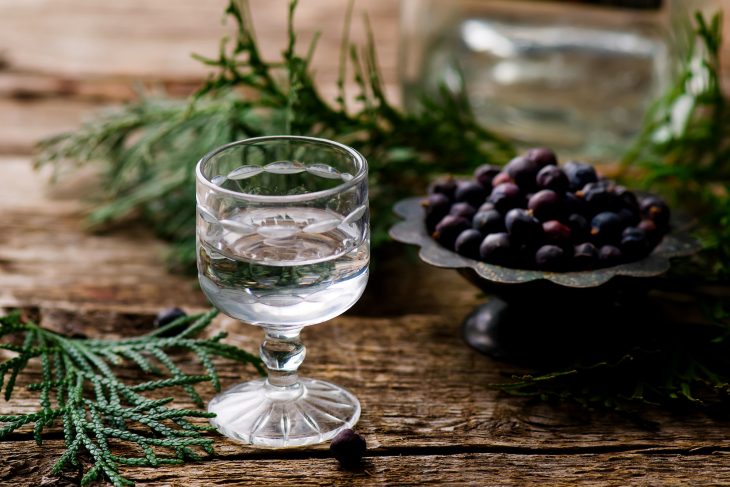
Gin, a popular and versatile spirit, has become a staple in many home bars and cocktail recipes. Made from distilled grains and flavored primarily with juniper berries, gin has a distinct flavor profile that sets it apart from other spirits. In this article, we’ll explore 18 gin nutrition facts to help you better understand this popular beverage and make informed decisions about incorporating it into your diet.
Calories
A standard 1.5-ounce (44 ml) serving of gin contains approximately 100 calories. The caloric content of gin is primarily derived from alcohol, which contains 7 calories per gram. Gin is relatively low in calories compared to other alcoholic beverages like beer and wine.
Carbohydrates
Gin is a distilled spirit, which means it contains zero carbohydrates. The distillation process removes any residual sugars or starches from the grains used to make the spirit. This makes gin a suitable option for those following a low-carb or ketogenic diet.
Fat Content
Gin contains no fat, making it a low-fat option for those watching their fat intake.
Protein Content
Like most distilled spirits, gin contains no protein. If you’re looking to increase your protein intake, you will need to consume protein-rich foods alongside your gin-based drinks.
Sodium
Gin is generally very low in sodium, with only a trace amount present in a standard serving. This makes gin a suitable option for those monitoring their sodium intake for health reasons.
Sugar Content
Gin is a sugar-free beverage, as the distillation process removes any residual sugars from the grains used to produce the spirit. However, it’s important to note that mixers and cocktail ingredients can significantly increase the sugar content of a gin-based drink.
Gluten-Free
Many gins are made from grain-based alcohol, which can be concerning for those with gluten sensitivities or celiac disease. However, the distillation process typically removes any gluten proteins, making most gins safe for consumption by those with gluten-related issues. If you are particularly sensitive to gluten, look for gins specifically labeled as gluten-free.
Botanicals
The primary flavoring agent in gin is juniper berries, which give the spirit its characteristic piney taste. In addition to juniper, gin can be flavored with a variety of other botanicals, such as citrus peels, coriander, angelica root, and cardamom. These botanicals add complexity and depth to the flavor of the gin.
Varieties of Gin
There are several varieties of gin, each with its own unique flavor profile and characteristics. Some popular types of gin include London Dry, Old Tom, Plymouth, and Navy Strength. The specific botanicals used, as well as the production processes, can influence the taste and nutrition of each gin variety.
Gin and Tonic
One of the most popular gin-based drinks is the classic gin and tonic. While the gin itself contains no sugar, tonic water is typically sweetened and can add a significant amount of sugar and calories to the drink. To reduce the sugar content, opt for diet or sugar-free tonic water.

Moderate Consumption
As with any alcoholic beverage, it’s important to consume gin in moderation. Excessive alcohol consumption can lead to a range of health issues, including liver damage, weight gain, and increased risk of certain cancers. It’s recommended that women consume no more than one alcoholic drink per day, and men no more than two.
Antioxidant Properties
Some of the botanicals used to flavor gin, such as juniper berries and citrus peels, contain antioxidants. Antioxidants can help protect the body against free radicals, which can cause cellular damage and contribute to various diseases. However, it’s important to note that the antioxidant content in gin is relatively low compared to other sources, such as fruits and vegetables.
Gin and Weight Management
Gin can be a better choice for those watching their weight compared to other alcoholic beverages, as it is lower in calories and contains no sugar or carbohydrates. However, mixers and added ingredients can increase the calorie content of gin-based drinks, so be mindful of your choices when consuming gin in cocktails.

Gin and Allergies
Some individuals may be allergic to certain botanicals used in gin production. If you have a known allergy to any of the ingredients used in a specific gin, it’s best to avoid that variety or seek out an alternative that doesn’t contain the allergen.
Organic Gins
Some gin brands offer organic options, which are made using organically grown grains and botanicals. These gins may appeal to those looking for environmentally friendly and sustainable choices in their alcohol consumption.
Craft Gins
The craft gin movement has led to an increase in small-batch, artisanal gins. These gins often use unique botanical blends and production methods, resulting in a diverse array of flavors and styles. Craft gins can be an exciting option for gin enthusiasts looking to explore new tastes and support local producers.
Gin Cocktails
There are countless gin cocktails to explore, ranging from simple classics like the gin and tonic to more complex creations like the Negroni or Aviation. Experimenting with different gin varieties, mixers, and ingredients can help you find the perfect gin cocktail to suit your taste preferences and nutritional goals.
Alcohol-Free Alternatives
For those looking to enjoy the flavor of gin without the alcohol, there are a growing number of alcohol-free gin alternatives on the market. These products aim to replicate the taste and complexity of traditional gin using botanicals and other flavorings, without the alcohol content.
Conclusion
In conclusion, understanding the nutritional content of gin can help you make informed decisions about incorporating this popular spirit into your diet. Gin can be a relatively low-calorie and low-sugar option for those watching their weight or carbohydrate intake. However, it’s essential to consume gin in moderation and be mindful of mixers and added ingredients that can increase the calorie and sugar content of gin-based drinks. Keep these 18 gin nutrition facts in mind as you enjoy this versatile and flavorful spirit.
Was this page helpful?
Our commitment to delivering trustworthy and engaging content is at the heart of what we do. Each fact on our site is contributed by real users like you, bringing a wealth of diverse insights and information. To ensure the highest standards of accuracy and reliability, our dedicated editors meticulously review each submission. This process guarantees that the facts we share are not only fascinating but also credible. Trust in our commitment to quality and authenticity as you explore and learn with us.


